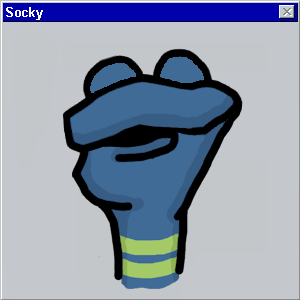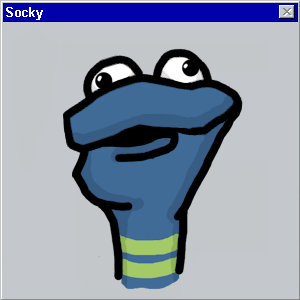New word?
November 22, 2006 7:27 PM Subscribe
Concerning the first appearance of words: Is there an authoritative source or repository of "new" words? I ask because I want to introduce what I believe is a "new" word but want to be certain it hasn't appeared anywhere else. I did the obvious Googasearch and found nothing.
The Oxford English Dictionary online maintains an updated list of "out-of-sequence new entries" and sub-entries.
If you don't subscribe yourself to the OED online, you may discover (as I serendipitously did) that you have access to it through your local public library.
posted by trip and a half at 7:38 PM on November 22, 2006
If you don't subscribe yourself to the OED online, you may discover (as I serendipitously did) that you have access to it through your local public library.
posted by trip and a half at 7:38 PM on November 22, 2006
Check out the American Dialect Society's "Word of the Year" Award Archives.
http://www.americandialect.org/index.php/amerdial/categories/C178/
The archives contain a list of nominations for the most important new words coined in any given year from 1990 to 2005. Since theirs is an academic publication, they try to choose the most important new words.
By browsing through their website, you are sure to come across neologisms that have been selected for their importance. That way you can be sure that you are looking at terms that have a very good probability of remaining in the language for a long time as opposed to words that are hot at the moment but will later disappear.
(Of course they do contain a lot of terms that were hot at the time of their inception but will not matter much later; I am pretty sure that "hanging chad" is a 2000 reference that will fall on deaf ears come 2020.)
posted by gregb1007 at 7:38 PM on November 22, 2006
http://www.americandialect.org/index.php/amerdial/categories/C178/
The archives contain a list of nominations for the most important new words coined in any given year from 1990 to 2005. Since theirs is an academic publication, they try to choose the most important new words.
By browsing through their website, you are sure to come across neologisms that have been selected for their importance. That way you can be sure that you are looking at terms that have a very good probability of remaining in the language for a long time as opposed to words that are hot at the moment but will later disappear.
(Of course they do contain a lot of terms that were hot at the time of their inception but will not matter much later; I am pretty sure that "hanging chad" is a 2000 reference that will fall on deaf ears come 2020.)
posted by gregb1007 at 7:38 PM on November 22, 2006
There's no such thing as an authoritative source of very new words, because a word has to get established and stay in use for a while before any authoritative source would list it. So, what's "new"?
For example, "podcasting" is new enough to be remarked upon, but established enough to go in a dictionary, and unlikely to go away.
But I bet you there was some other word which flourished and died in the same year that "podcasting" first appeared and is now forgotten.
As pompomtom says, it doesn't work like that, but the only real "official" recognition of a new-ish word is when dictionaries put out a press release about all the new words they're including in their new edition. We've all heard that story on the radio:
For example, "podcasting" is new enough to be remarked upon, but established enough to go in a dictionary, and unlikely to go away.
But I bet you there was some other word which flourished and died in the same year that "podcasting" first appeared and is now forgotten.
As pompomtom says, it doesn't work like that, but the only real "official" recognition of a new-ish word is when dictionaries put out a press release about all the new words they're including in their new edition. We've all heard that story on the radio:
"Do you listen to PODCASTS? Are you worried about CYBER-TERRORISM? Are you perhaps a METROSEXUAL? The new edition of the such-and-such dictionary contains over two thousand words, blah blah blah we spoke to editor Jane Smith about all these crazy new words the kids are using now, yada yada yada"posted by AmbroseChapel at 7:53 PM on November 22, 2006
Ahem: "...contains over two thousand new words..."
posted by AmbroseChapel at 7:54 PM on November 22, 2006
posted by AmbroseChapel at 7:54 PM on November 22, 2006
To clarify, I mentioned the OED's list because I thought it might interest you if you weren't aware of it, but I definitely agree with AmbroseChapel's (and pompomtom's) point.
posted by trip and a half at 8:04 PM on November 22, 2006
posted by trip and a half at 8:04 PM on November 22, 2006
Also:
How do new words get into the OED?
Link for a selection of new words appearing in the Concise OED
posted by rob511 at 9:49 PM on November 22, 2006
How do new words get into the OED?
Link for a selection of new words appearing in the Concise OED
posted by rob511 at 9:49 PM on November 22, 2006
What's the word, if I may ask?
posted by goodnewsfortheinsane at 9:13 AM on November 23, 2006
posted by goodnewsfortheinsane at 9:13 AM on November 23, 2006
Thanks for the mention of my site, Double-Tongued Dictionary. There's no such thing as an authoritative list of new words, but I do try to capture at least a few of the millions that are coined each year (yes, millions: most die). I also am part of the new words team for the American Dialect Society mentioned above, which also features an "Among the New Words" column in its journal American Speech (available through JSTOR; check your local library or university library). You might also try Paul McFedries' Word Spy, though he tends towards a type of goofy blend a with short shelf life. Also try Merriam-Webster's Open Dictionary, though it's largely useless because it's filled with nonce words coined by people who think they can become famous by inventing a word nobody uses--and many of them come up with words they think are genius only to find that those words have existed for decades. Finally, you might find the Protologisms page at Wiktionary useful.
posted by Mo Nickels at 10:05 AM on November 23, 2006 [1 favorite]
posted by Mo Nickels at 10:05 AM on November 23, 2006 [1 favorite]
Be sure to check out the relevant episode of The Show.
posted by headlessagnew at 10:17 AM on November 23, 2006
posted by headlessagnew at 10:17 AM on November 23, 2006
You might want to write to the radio show A Way With Words and ask them. words@kpbs.org
posted by billtron at 9:35 AM on November 25, 2006
posted by billtron at 9:35 AM on November 25, 2006
« Older Can a non New Yorker get an NYC webdev job? | Urban vs. suburban customer experience Newer »
This thread is closed to new comments.


posted by pompomtom at 7:34 PM on November 22, 2006